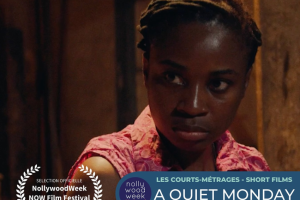The Nigeria’s First Lady, Dr. Aisha Muhammadu Buhari on Tuesday lamented that the country is getting more victims of child labour despite her intervention through her Future Assured project.
Speaking in Abuja at the national chidren conference in commemoration of the 2022 World Day against Child labour, WDACL, the First Lady said that the circumstances leading to child labour still subsist in the country.
Mrs. Buhari, who was represented by the First Lady of Kwara State, Amb. Olufolake Abdulrazaq, said that the eradication of child labour required a systemic approach and effective policies to strengthen social protection systems, education, and decent work opportunities for parents and caregivers to address the conditions that drive child labour.
According to her, “Child labour remains a major threat to child development in Nigeria, in spite of legislative measures taken by the government at various levels to curb it.
“In its efforts to reduce incidence of child labour, the government is implementing vigorously the National Children School Feeding Programme which is the major plank of the battle to fight Child Labour, increasing children school enrolment and preventing children dropping out of schools.
“Worthy of note too is the adoption of the child rights law and other protective laws by governments at the state level as also playing a critical role in militating against child labour.
“My Future Assured as you know has done very much in this regard especially through advocacy. I call on us all to do more because we are getting more victims and also the circumstances leading to child labour still subsist.
“The eradication of child labour however requires a systemic approach and effective policies to strengthen social protection systems, education, and decent work opportunities for parents and caregivers to address the conditions that drive child labour.”
She said that the event provided the avenue to call for increased investment in social protection systems and schemes to establish solid social protection floors and protect children from child labour.
In his keynote address, the Minister of Labour and Employment, Senator Chris Ngige said that Nigeria has made remarkable efforts in dealing with the menace of Child nabour.
He said, “As a country, we take pride in stating that considerable efforts have been made in dealing with this menace.
“Most notably the adoption and ratification of ILO Conventions 138 and 182 on Minimum Age and Worst forms of Child Labour respectively; the passage of the Child Rights Act into law to domesticate the Convention on the Rights of the Child, with adoption by about 30 state governments; the implementation and enforcement of National Action Plan on Child Labour, Prohibition and Elimination of Forced Labour, Modern Slavery, and Human Trafficking in workplaces spearheaded by the Federal Ministry of Labour and Employment.
“Also the National Steering Committee, as well as State Steering Committees, and Desk Officers on Child Labour were established at all levels of government and institutional levels to translate the provisions of the 5-year National Action Plan. In spite of all these, we require more collaboration and partnerships to confront the task ahead of us.
“Therefore, this year’s theme tagged ‘Universal Social Protection to End Child Labour’ is essentially a call for more investments in social protection systems in order to create a strong protection base that will keep children away from Child Labour.
“As we reflect on the progress being made so far, let us also not lose sight of the importance of providing safety nets for children in vulnerable conditions.
The Minister, who appreciated the Social Partners and development partner the International Labour Organisation, ILO, for their continued support and commitment, noted that global estimates have shown that child labour is on the rise; with an increase from 152 million to 160 million between 2016 and 2020.
Hr said, “In Nigeria, Child Labour has become a scourge. Several children find themselves on the streets, forced to make a living, with others employed in industrial complexes, and hazardous environments.
“Statistics revealed there are about 15 million child workers as at 2020, according to the ILO, with the UN warning that the absence of mitigating strategies could see an increase of children engaged in Child Labour by the end of 2022. This of course, will most certainly have massive implications in the near future.
“The outbreak of COVID-19 brought with it a chain reaction that caused devastating effects on the long-term development and safety of children worldwide.
“As a result, families were plunged into poverty and vulnerable conditions, with households needing to employ various means for survival; this meant children were forced to go into the streets to bring income, exposing them to higher levels of vulnerability compared to adults.
“The government of His Excellency, President Mohammadu Buhari, has done so much in addressing some challenges fueling Child Labour in Nigeria through the following ways:
“Poverty- this is being addressed through Social Investment programmes of the Federal Government such as Conditional Cash-transfer, Trader moni, N. power etc.; Jude hoted
“Cultural Religious Factors – these are being addressed through sensitization and awareness creation in communities, Churches and Mosques. Also erection of bill boards by the government and stakeholders in strategic locations;
“Poor Infrastructure / non-conducive learning environment in some public schools is being addressed through the provision of furniture, lockers, tables etc. and renovation of schools as well strengthening of security measures in schools through the Safe School Initiative
“Poor School Enrolment / School drop-out – being addressed through Home grown School Feeding of the Federal Government which has brought about increase in children enrollment in our schools;
“Skills Gaps/Unemployment establishment by government of several Skills Training/ Upgrading Centers spread across the States of the Federation on different trades and skills for youth employment by my Ministry, I know other Ministries, Departments and Agencies (MDAs), State Governments and Non-Governmental Organisations (NGOs) are doing the same;”
Ngige said inadequate social protection strategy was being addressed through empowerment Programmes such as provision of soft loans to cooperative societies by Central Bank of Nigeria, National Directorate of Employment and other organisations.
The Permanent Secretary, Ministry of Labour and Employment, Kachollom Daju in her opening remarks informed that the gathering was the third and the grand finale of year 2022 commemoration of WDACL.
She said, “As spelt out by the United Nations Convention on the Rights of the Child, the Nigerian Child, like his colleagues all over the world, has the inalienable right “to survival, to develop to the fullest, to protection from harmful influences, child molestation, child abuse, emotional abuse and exploitation, and to participate fully in family, cultural and social life”.
“The theme for this year’s World Day Against Child Labour (WDACL) “Universal Social Protection to End Child Labour” – is coming at no better time than now when parents, and vulnerable people are in dire need of social protection as a result of present economic hardship and insecurity bedeviling our dear country.
“It is a globally accepted fact that Social Protection programmes reduce family poverty and vulnerability, thereby diminishing key drivers of Child Labour. It helps families to cope with economic and health shocks, reduces Child Labour and facilitates schooling. In the light of this, it is our sincere hope and desire that the theme and activities lined up for this year’s commemoration of World Day Against Child Labour, would stimulate and drive passion and collective action towards
improving the future of Nigerian children through enhanced Social Protection.”
She urged the children, to flee from all actions that promote violence that can compromise the security as a people and as a nation.
In her welcome eemarks, the Director, ILO Country Office for Nigeria, Ghana, Liberia, Sierra Leone and Liasion Office for ECOWAS, Vanessa Phala said 1.5 billion children worldwide, between the ages of 0-14, receive no family or child cash benefits and that more than 160 million children are still engaged in child labour.
“Going by the 2020 Global Estimates of Child Labour, 160 million girls and boys will remain in child labour, with half of that number in hazardous work if we do not listen and act now.
“Although most children engaged in child labour are found in Agriculture (I.e 112 million) worldwide, there is evidence to show that the recruitment of child soldiers continues; and that from 2016-2020, child labour increased by 8.9 million, among children aged 5-11.
“Beyond the statistics, child labour is a real and present danger to everyone.
“In Nigeria, not less than 15 million children are engaged in child labour, and half of this number is bearing the heavy burden of hazardous work,” she said.
She said parents and care givers have been included in its expanding safety nets to ensure that children attain at least the basic compulsory education level- Basic 9.
“We urge employers to honour the right of workers to social protection by constantly remitting the employer’s contribution to health protection, old age benefits, employment injury scheme, and other support systems.
“We also request an increase in Corporate Social Responsibility (CSR) to focus on reducing the vulnerability of children, increased funding for existing interventions, ensuring continuity in executing policies related to child labour, supporting school to work transition, and encouraging child participation especially of children within the legal working age.”























Add Comment